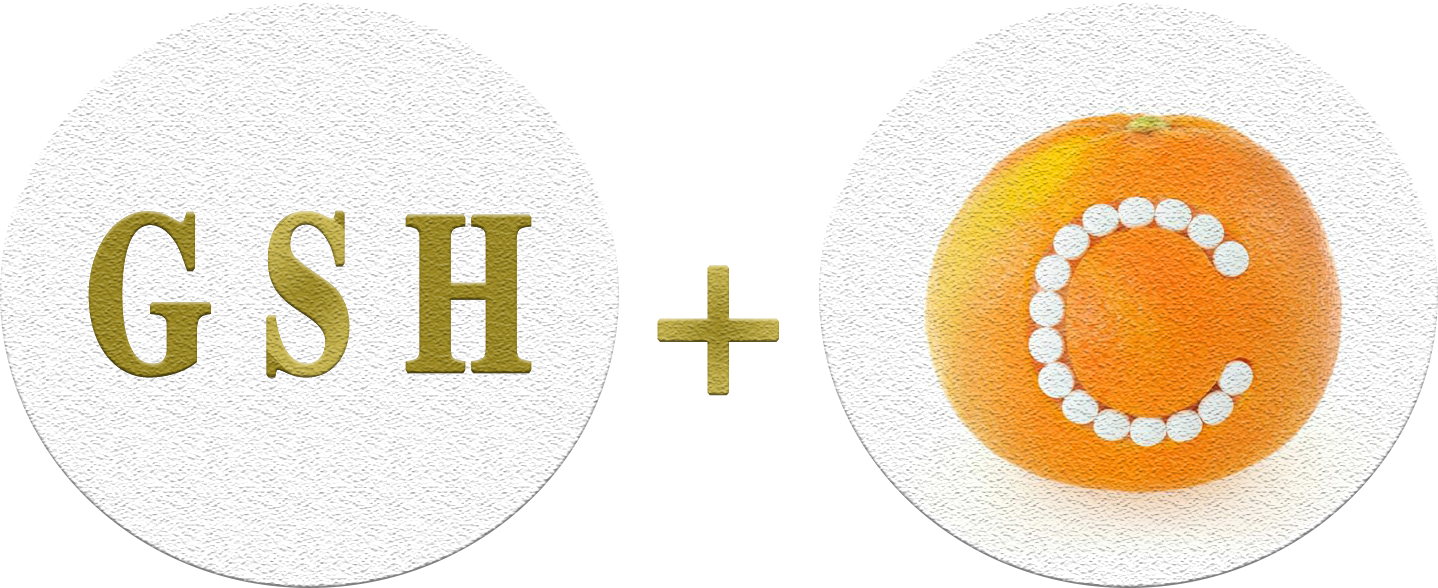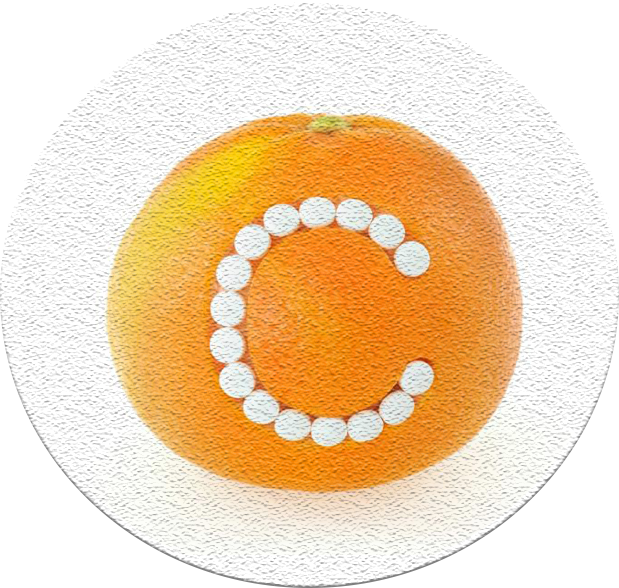
Last Updated Dec 16, 2018 | Published Dec 06, 2018 at 10:43PM Author: Katie Oberg
Take it Away
1.L-Glutathione and Glutathione are not the same
2. Glutathione and Vitamin C work synergistically within the body.
3. The less oxidative damage within the body, the healthier the skin.
4. Cysteine is the most critical amino acids of all within the Glutathione molecule.
5. Chronically low levels of Glutathione production have been linked to lowered cysteine levels.
6. Vitamin C is found in both naturally occurring food sources like fruits and
7. Vitamin C is critical to the activation of Glutathione within the body.
8. Both Vitamin C and Glutathione have a nutrient-sparing effect within the body which helps the body recycle and regenerate other essential vitamins and nutrients.
9. Damaged cells and an overload of toxins within the body contribute towards unhealthy skin.
10. Both Glutathione and Vitamin work to combat oxidative damage within the body.


Is Glutathione and Vitamin C the real answer?
Glutathione and Vitamin C are two of our bodies most important anti-oxidants. Both of these compounds play a vital role in the healthy functioning of the human body. Now, how do they actually contribute towards giving us healthy, vibrant looking skin? Well, they have specific anti-oxidant properties.
What is L-Glutathione?
L-Glutathione is simply a Glutathione molecule with an extra electron, the purpose of this extra electron is to neutralize free-radicals entering the body through the metabolic pathway.
Glutathione peroxidase activity is the process of converting Glutathione into an active and readily usable state, the glutathione-S-transferase enzyme binds glutathione to toxic substances so they can be readily excreted from the body.
The fewer toxins present in the body means less intra-cellular damage, and thus the more rejuvenated and healthier the cells become. This results in a more youthful and glowing appearance to the skin.
Did you know? According to research scientists, a reduction in cysteine, an amino acid found within the Glutathione molecule is the single number 1 reason why Glutathione levels might remain chronically low. According to the University of Maryland Medical Center, cysteine is commonly found in high protein food sources like chicken, and cheeses, and unlike its other counterparts is a less commonly occurring amino acid. [1,2]
What is Vitamin C?
Vitamin C, ascorbic acid, or ascorbyl-6-palmitate, is one of the body’s most important anti-oxidants. Found naturally in high citrus foods, and colorful vegetables like bell peppers during the summer months, it contributes massively towards our overall skin health and our skin’s natural radiance. Vitamin C not only protects against photo-aging (aging-induced through repeated exposure to sunlight), but it also helps with collagen synthesis by stabilizing collagen fibers and decreasing collagen degradation. However, it’s primary benefits lies in its ability to recycle and work synergistically with other vitamins like Vitamin E to protect against oxidative damage. [3,4]
How important is Vitamin C?
The Journal of Biological Chemistry states that: “Vitamin C is an essential antioxidant that enhances survival of oxidatively stressed human vascular endothelial cells in the presence of a vast molar excess of Glutathione”, essentially pointing to the fact that Vitamin C contributes single-handedly towards the survival of damaged human endothelial cells when placed under oxidative challenge. Vitamin C has the ability to recycle and work synergistically with other vitamins like Vitamin E to protect against oxidative damage. [3,4]
How does Glutathione and Vitamin C work together in the body?
Animal research studies have highlighted the interactions that occur when Vitamin C levels and GSH (Glutathione) levels are increased in the blood. The presence of both antioxidants simultaneously induces a reaction known as ‘nutrient-sparing’, that helps the body to maintain adequate supplies of both of these important anti-oxidants during times of oxidative stress. [2]
How do they contribute towards radiant skin?
This nutrient sparing effect prevents the body from entering a state of nutrient deprivation, whereby the body does not have sufficient anti-oxidant capacities to continue it’s most vital biochemical functions. The body remains in a constant state of regeneration, free-radicals cannot damage the cells and nutrients and vitamins are spared for their most critical functions and more. The skin remains radiant, clear, and blemish free (for the most part).
A bit of the science: The Journal of Biological Chemistry describes in an article exactly how both Vitamin C and Glutathione attempt to neutralize toxic hydrogen peroxide and oxygen free radicals. This ‘sparing’ effect of nutrients keeps the skin cells healthy and alive. It’s important to take note that these studies were done on animals with a DNA structure very similar to that of humans, hence the generalisability of the data still remains questionable. [1]
References and Sources:
PubMed: 1. Metabolic cooperation of ascorbic acid and glutathione in normal and vitamin C-deficient ODS rats. 2. The Antioxidant Role of Glutathione and N-Acetyl-Cysteine Supplements and Exercise-Induced Oxidative Stress.
The Journal of Biochemical Chemistry: The Relationship between Glutathione+ Ascorbic Acid in the Anti-oxidant system in Animals. 4. Vitamin C as an Essential Antioxidant.
Disclaimer: Products sold by SHCGlutathione and Co. or it's accredited distributors are not intended to diagnose, treat, cure or prevent disease.
Find out more about how the FDA supports and regulates the sale of supplements. Learn more.
© 2023 - 2025 SHCGlutathione. All rights reserved.

